Drug Traffickers Exploit Haiti While Amassing $10 Billion Under U.S. Scrutiny
Haiti officials and elites have been making headlines for years when it comes to drug trafficking, but what happens when $10 billion dollars becomes a bit of a problem? How do you launder and conceal $10 billion dollars without drawing attention, especially when investments in the Caribbean Islands and Central America have already been saturated by drug money? What makes an already bad situation worse? The impact the drug traffickers have on the people of Haiti is absolutely dire. While the drug lords rule the streets, the people of Haiti are dying a slow death from starvation, lack of jobs, and a lawless nation brimming with abuse and neglect.
Who are the players and how has this managed to go on for as long as it has? Is there an end in sight? In 2014 the authorities of the Dominican Republic were alerted by the U.S. tax authorities that they were aware of collusion with the mafia sector of the Haitian financial system in money laundering. Because of this, the Dominican Republic may quite possibly be keeping their distance, but what of other countries and island nations involved such as Colombia, the Bahamas, and the United States of America?
This is a deep tunnel with some hidden burrows that lead to very interesting connections. Stay with me as I give a brief history of drug trafficking through the hub of Haiti, where the drugs are coming in and going to, some key arrests, bad actors and their undesirable connections, and a possible ray of hope amid all this devastation that just recently dropped yesterday as I was writing this. It is a very exciting possibility! Read on… it is a long article, but necessary in order to include all players, connections, and what this has done to the people of Haiti. So if you are one with a 3-minute attention span, I highly suggest scrolling down to see the guts of this before bookmarking it never to return – you do not want to miss the ending. This is BIG.
WARNING: There are some disturbing photos farther down in this article. In trying to keep this as real as possible so you understand how serious of a matter this is, I felt it was necessary to include them. Forgive me, they are not easy to look at.
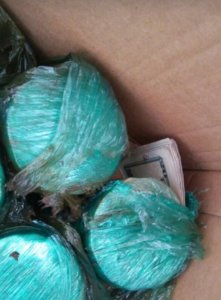
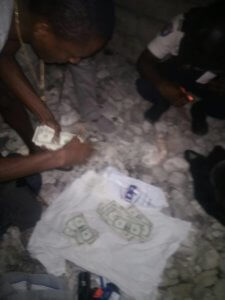
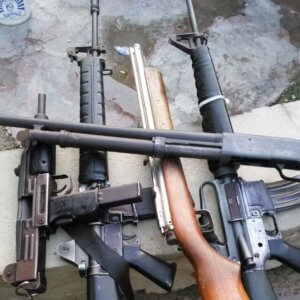
A Brief History of Drug Trafficking Through Haiti – The Players
My source tells me that several people in the parliament of Haiti, as well as police officials are involved in the current drug trafficking ring. A powerful notary (equivalent to a U.S. attorney) in Haiti that deals with land and assets handles their funds, while paying off high-ranking politicians in D.C. for protection. This had gone on for years. Hopefully with the new administration and draining of the swamp, those officials have already been kicked to the curb or are soon to be exposed. In light of the new information released that I cover at the end, we may finally be seeing some action. Let’s get behind it and make this information fly so we can blow this wide open and bring an end to it!
How did we get to this point? Below are some cliff notes of arrests of high-ranking officials, their relatives, and the elites that have been circulating the drug trafficking sector for quite some time. These are some of the key players, and it’s important to understand the key players because of their ties to other “key players”.
A) In 1989 AP News reported four high-ranking army officers were discharged for drug trafficking a day after visiting U.S. official tied resumption of U.S. aid to progress in stopping the drug trade.
Independent Radio Haiti Inter said the discharged officers are Lt. Col. Rosny Casimir, Lt. Col. Serge Toussaint, Lt. Col. Lionel Liautaud, and Lt. Col. Antoine Jean-Gilles Jr.
Radio Haiti Inter and privately-owned Tele Haiti, citing unidentified sources of the Army High Command, said the four officers were discharged Wednesday night for their involvement in drug trafficking.
Melton said the resumption of aid depended on progress in establishing a civilian government, respect for human rights and stopping the narcotics trade.
Two-thirds of the $90 million annual U.S. aid package to Haiti was suspended after the violently aborted elections in November 1987 in which at least 34 voters were shot and hacked to death at the polls by thugs protected by soldiers.
Why am I including information from 1989? For good reason. Aside from the fact these are four officers, one of these names will resurface later in the article. In addition to this, it is important to note how aid packages are prefaced on respect for human rights, because this too will resurface.
B) In 2001 Bernard Sansacricq, former President of the Senate of Haiti, warned in a letter he sent to the South Florida Sun-Sentinel that was published in his book:
“Aristide will never be able to rule or realize any kind of democratic reforms in Haiti. Aristide does not believe in democracy, does not practice democracy, and will never embrace democracy.
The man pockets some $20 million monthly from the cocaine trade with Colombian drug lords in Haiti.
Aristide is also exporting death to American children and flooding U.S. streets with cocaine and heroin. The man must be indicted by a grand jury and brought back to the U.S. for trial, just like Noriega.
Anyone having so much drug money to play with will always control the “unemployed majority” looking for their next meal.”
C) In May, 2004 the New York Times published an article titled ‘Drug Traffickers Find Haiti a Hospitable Port of Call’ stating:
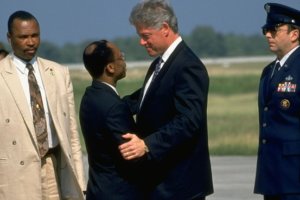
This chaotic, impoverished country has been a bustling crossroads for moving Colombian cocaine to the United States for at least 20 years. But since the departure of President Jean-Bertrand Aristide on Feb. 29, investigators, diplomats and government officials here describe emerging evidence of a state so riddled with drug money that it touched even the presidential palace, through Mr. Aristide’s chief of security.
The Clinton administration used force to usher Mr. Aristide back to power in 1994 after he was pushed out in a coup.
So much drug money was at stake in the power struggle that culminated in Mr. Aristide’s departure that Bruce Bagley, a professor at the University of Miami who has studied drug trafficking in Haiti, called the rebellion ”basically a narco-coup.”
”The battle was over who is going to control the drug trafficking and the profits of the drug trade,” he said.
”Our biggest concern is the drug trafficking,” the United States ambassador, James B. Foley, said in a speech to Haiti’s Chamber of Commerce in Port-au-Prince last month. ”With the departure of one regime that maintained intimate relations with big drug traffickers,” he added, ”there will be an effort to rebuild the networks, including by trying to infiltrate and manipulate the police.”
American officials say that at least 80 tons of cocaine was shipped through Haiti in the Aristide years, and drug enforcement officials and diplomats estimate that 8 percent of the cocaine shipped from Colombia to the United States still flows through Haiti.
D) Just one month later in June, 2004 the Sun Sentinel published ‘Ex-senator in Haiti Faces Drug Charge: Aristide Party Member in Custody in Miami’ as stated below:
The U.S. investigation into drugs, money and corruption under Haitian President Jean-Bertrand Aristide stretched Tuesday from the ranks of the Haitian National Police into the upper echelon of the Senate and ruling political party.
Fourel Celestin, a former president of the Senate and member of Aristide’s Famni Lavalas Party, was taken into custody Tuesday at the Miami offices of the Drug Enforcement Administration. He is being held without bail.
After learning of the search, Celestin turned himself in at the U.S. Embassy on Tuesday morning, officials in Haiti said. He is scheduled to appear this afternoon before a federal magistrate in Miami, where he will be presented with a criminal complaint charging him with conspiring to import cocaine into the United States.
The complaint alleges that Celestin was involved in drug activity from 1995 to January 2003. He is the fifth Haitian official to face U.S. drug charges since Aristide was forced out in February.
Rudy Therassan, a former commander of the national police, was indicted Friday by a federal grand jury in Miami.
He is accused of eight counts of cocaine conspiracy and money laundering, and federal authorities are seeking the forfeiture of nearly $1.9 million in alleged drug-trafficking proceeds.
Oriel Jean, Aristide’s former head of palace security; Jean Nesly Lucien, former director-general of the national police, and Evintz Brillant, former chief of narcotics for the national police, also are in custody, accused in criminal complaints with conspiring to import cocaine into the United States.
E) In 2011 the Nation published ‘Haiti WikiLeaks Sparks Political Furor and Elite Drama’ reporting that:
Fritz Mevs told the embassy that the president of the Haitian Chamber of Commerce, Reginald Boulos, had “distributed arms to the police and had called on others to do so in order to provide cover to his own actions.” Boulos currently sits on the board of President Bill Clinton’s Interim Haiti Recovery Commission (IHRC), which controls the spending of billions donated to rebuild Haiti after the January 12, 2010. quake.
Mevs told Ambassador Foley that “Haiti’s real enemy and the true source of insecurity [was] a small nexus of drug-dealers and political insiders that control a network of dirty cops and gangs that not only were responsible for committing the kidnappings and murders, but were also frustrating the efforts of well-meaning government officials and the international community to confront them.”
At the center of this cabal, according to Mevs, was prominent attorney Gary Lissade, formerly a lead counsel for the military government of Gen. Raoul Cédras in the early 1990s. Today, Lissade sits, alongside Reginald Boulos, on the board of the Clinton co-chaired IHRC. Attempts to reach Lissade and Boulos for comment through the IHRC were unsuccessful.
Foley wrote that although his embassy “cannot confirm whether the alleged cabal of political insiders allied with South American narco-traffickers is controlling the gangs, we have seen indications of alliances between drug dealers, criminal gangs and political forces that could threaten to make just such a scenario possible via the election of narco-funded politicians.”
It’s also important to note that Michel Martelly appointed Fritz Mevs’ brother Gregory Mevs and Bill Clinton Co-Chairman of the Presidential Advisory Council for Economic Growth & Investment (CCPDEI). Gregory Mevs also assisted the Clinton Foundation after the earthquake. Gary Lissade has since passed away.
F) In 2015, as reported by the Haiti Sentinel as well as other sources, Marc Antoine Acra became the prime suspect in a drug-trafficking case sparked by the seizure of 82 kilos of cocaine, 10 kilos of heroine; the largest haul ever by the Haitian National Police (PNH). This was raising a lot of questions due to his relationship with President Jovenel Moise, especially after Moise’s visit to the Dominican Republic which has become a top route for narcotics trafficking, and which happens to be where sources say Acra is currently hiding out.
In 2016 Marc Antoine Acra, head of NABATCO importing company, Sébastien François Xavier Acra and Gregory Georges, alias Ti Ketan were charged for “illicit drug trafficking” after transporting a cargo of sugar on the Manzanares ship from Colombia.
Also named in the indictment are Fedner Doliscar aka Surpris, and Jacquelin Wilfrid aka Bouboul, who are charged with “complicity in smuggling of drugs.”
A few key details of this case are as follows:
• The Manzanares ship flying a Panamanian flag was anchored in Fritz Mevs’ Port Terminal Varreaux.
• The shipping agency Madsen Export-Import SA was an agency contracted by NAVESCO to work for Marc Antoine Acra’s company NABATCO.
• The sugar cargo was Incauca brand that was commissioned by Nabatco with a Colombian company names Azucares Y Mieles.
• The sugar was loaded at the port of Buenaaventura in Colombia by the Sociedad Porturia Regional de Buenaventura.
Statement from Marc Antoine Acra, owner of NABATCO when the seizure took place in 2015:
Faced with the progression of derogatory rumors, comments and press reports, the company stock Bag and National Trading Co. Ltd., better known as the NABATCO, represented by its Director General M Marc Antoine Acra, wants to review the record of narcotics seized on Manzanares boat and bring some facts to the public’s attention.
NABATCO is in the sugar trade for over twenty years and has maintained more than ten years of excellent professional relationships with Colombian society CJ DE azúcares Y mieles SA itself, sugar exports managed globally and enjoys an excellent reputation in this domain.
The NABATCO wishes to clarify that narcotics were found on April 22, 2015 in the hold of MANZANARES and not inside bags of sugar during unloading, done under the supervision of regular supervisory authorities and BLTs.
The NABATCO cautions that vessels carrying cargoes of sugar does not belong to the NABATCO, it is a Freight American company that is responsible for chartering boats for NABATCO, and payment of the freight is made to that company which itself rule with the owners of these boats.
The NABATCO more precise that transport of boats, are done according to normal procedures. These loads are proceeded under the supervision of Colombian port authorities checked by the narcotics control authorities and the security service before leaving the port of Buenaventura. Neither the Colombian port authority, the shipping agent or “surveyor WSS” has raised any irregularity mention about the sugar cargo.
The NABATCO remains available to the authorities to carry out investigations and come to a quick resolution of this unfortunate situation that has caused serious injury and affects the activities of several of its clients.
G) In 2015 the New York Times did an amazing article (I have to hand it to them) on the inner circle of the power players involved in drugs, money laundering, murders and elections. I highly recommend reading this entire article as it is chock-full of key info, but I have extracted snippets below to give you the broad scope of players involved:
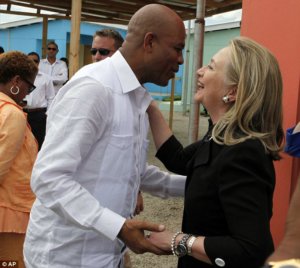
For two months, Mr. Martelly has governed Haiti by executive order, concentrating power in the hands of a man who, his critics say, is a prisoner of his past, surrounded by a network of friends and aides who have been arrested on charges including rape, murder, drug trafficking and kidnapping.
One of Mr. Martelly’s senior advisers was jailed for six months during the president’s tenure after being accused of killing a man in a gunfight at the Dominican border. Another friend of the president vanished last year, shortly after being released from jail in a marijuana trafficking case.
The prosecutor in that case fled the country fearing retaliation.
Yet another of the president’s associates is in jail, accused of running a kidnapping ring. The authorities are trying to determine whether the man, Woodley Ethéart, who said he worked at the Ministry of Interior, laundered ransom money through a lucrative catering contract at the presidential palace, an investigator familiar with the case said.
The Martelly administration’s influence has been criticized most for its effect on the judiciary, where the criminal cases of some people close to the president have stalled or disappeared.
Prosecutors who objected to the administration’s interference were fired or fled, and one judge who complained that the president had meddled in a civil corruption case against Sophia Martelly, the first lady, died two days later.
“I would be very concerned of this interconnected web of nefarious characters,” said Robert Maguire, a Haiti scholar at George Washington University. “Martelly has empowered them to do what they do. He has established an environment of corruption, abuse of power and impunity.”
Disputed Election
Mr. Martelly was elected in 2011 after being placed in a runoff despite coming in third in a disputed election. International organizations, with an assist from Washington, helped Mr. Martelly by documenting his opponents’ widespread voter fraud.
Washington’s role in the election and the American ambassador’s warm relationship with him since has hurt Mr. Martelly’s credibility at home, where the president is considered a member of the conservative elite, disconnected from the poor majority.
The National Human Rights Defense Network, a leading human rights organization in Haiti, has argued that the president and his cabinet were complicit in protecting drug traffickers in other cases.
The president was widely criticized for the handling of a 2013 drug-trafficking case involving Evinx Daniel, a prominent hotelier and Martelly campaign supporter who owns Dan’s Creek, a beachfront hotel the president is known to frequent.
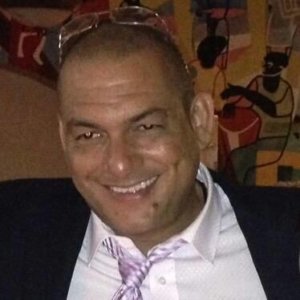
Mr. Daniel told the authorities that he had found 23 packages of marijuana floating at sea and decided to bring them home. He called the president’s brother-in-law, Mr. Saint-Rémy, who called the United States Drug Enforcement Administration to pick up the load, the brother-in-law said.
A prosecutor, Jean Marie Salomon, doubted the story, suspecting that it was a ruse to cover up a drug deal that local residents had stumbled upon, and arrested Mr. Daniel on drug-trafficking charges. But the prosecutor was nervous, because he knew the hotelier had been active in the president’s campaign.
“He told me, ‘Commissioner, someone wants to talk to you,’” Mr. Salomon recalled in an interview. “He said, ‘The minister is on the phone.’”
Mr. Daniel was released the next day, and Mr. Salomon was suspended for abuse of power and later resigned. The prosecutor’s police bodyguard never showed up for work again, Mr. Salomon said. Mr. Salomon said he saw masked gunmen outside the courthouse just as investigators were calling him to discuss Mr. Daniel’s case.
Shortly after, Mr. Salomon said President Martelly went to Port Salut, about 140 miles west of the capital, and stayed at his friend’s hotel.
“It was not only a provocation from the president, but also a coded message,” Mr. Salomon said. “That day, I understood there was a bounty on me, and my days were numbered.”
Mr. Salomon called the United Nations for help and fled the country, but has since returned.
The hotelier disappeared three months after his release from jail and is widely presumed to be dead.
“Since Martelly arrived in office, state institutions have become weaker than before,” said Pierre Esperance, director of the National Human Rights Defense Network. “We have no rule of law in Haiti.”
H) In January, 2017 the United States extradited one of the DEA’s most wanted – Guy Philippe. The New York Times reported:
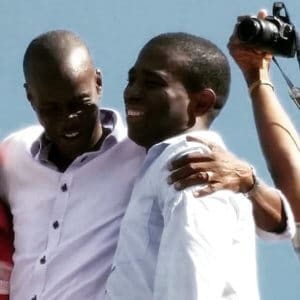
A year after the rebellion, he was secretly indicted by a federal grand jury in the United States that accused him of running drugs from Colombia out of Haiti, and laundering money. Each time United States authorities were close to apprehending him, someone would tip Mr. Philippe off; a 2007 mission launched from Guantánamo Bay involving Black Hawk helicopters flopped.
Despite being a fugitive whose face was posted on the Drug Enforcement Administration’s website, Mr. Philippe had recently been elected to the Haitian Senate. In an October interview with The New York Times, he maintained that the Americans could find him if they wanted to, as he was in plain sight.
Let’s Recap Some of The Names
Marc Antoine Acra
Jean-Bertrand Aristide
Laurent Lamothe
Former President Michel Martelly
Sophia Martelly (first lady)
Olivier Martelly (son of Michel Martelly)
Jean-Michel Moise (cousin of Jovenel Moise)
Jovenel Moise (current President)
Charles (aka Kiko) St. Remy (Michel Martelly’s brother-in-law)
Former Lt. Colonel Serge Toussaint
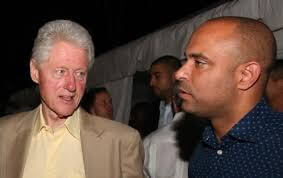
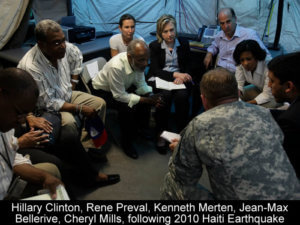

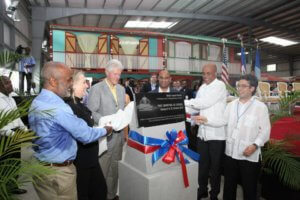
Cocaine is The Name of The Game – How is it Transported?
THE PORTS:
Port Route #1: Colombia
Cocaine is being transported right out of Colombia’s ports. There is an interesting little story I would like to share regarding Colombia and its ties before I cover the ports. I will state the facts and you can decide if and how it all connects.
Many of you may not be aware of this, but did you know that the Clintons own a company called Acceso Boyacá (incorporated in Canada) with their buddy Frank Giustra under the guise of Clinton Giustra Enterprise Partnership that is located in Colombia? I would tell you the name of the town, however, they intentionally put an irregular address listing a non-existent street with two towns on their tax return, and neither Bloomberg or google can find this company. I say “intentional” because this was done with most of their other companies as well. Yes, they own multiple companies in other countries. In fact, Acceso Boyaca’s controlling entity is their other company called Fondo Acceso who’s parent company is Acceso Fund LLC. Starting to see the picture here? If you thought the Clinton Foundation was the key source to their nefarious acts, you would be mistaken, that’s just one piece of the pie. According to their website and tax returns Acceso Boyaca is a company dealing in fruits and vegetables. That’s cute. Known for raping and pillaging lands for minerals and gold, turned supporters of the earth providing people with healthy fruits and vegetables. Okay.
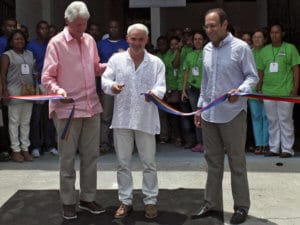 It gets better. They are so enthralled with their “business” over there that they decided to open a school in 2013 called Acceso Training Center in Cartagena Colombia in an area called Manga, where they claim to have helped 3,000 young Colombians learn skillsets in accounting, hospitality, ports and logistics. Wait, did someone say ports? I will come back to that.
It gets better. They are so enthralled with their “business” over there that they decided to open a school in 2013 called Acceso Training Center in Cartagena Colombia in an area called Manga, where they claim to have helped 3,000 young Colombians learn skillsets in accounting, hospitality, ports and logistics. Wait, did someone say ports? I will come back to that.
When researching this school, it is nowhere to be found, with exception of the Clintons’ website itself. There are absolutely no write-ups about it with the exception of one I found that depicts the Clintons as Gods. It does not exist on google maps, though all other training schools in that area would appear to be on there. Personally, if I had big investors involved (keep reading), I would be damn sure the school had a google business listing just as the others in the area do. There is a photo of a ribbon cutting with Bill Clinton and Frank Giustra in front of an obscure building cropped out only to reflect several students standing behind them. Since there is no address, mapping, photos of the school, one must assume… why this must be it?!
This training center is so important that Canada decided to join in, according to their press release:
Cartagena, Colombia — The Clinton Giustra Enterprise Partnership (CGEP), an initiative of the Clinton Foundation, founded by President Bill Clinton and philanthropist Frank Giustra, today announced a partnership with the Government of Canada, through the Department of Foreign Affairs, Trade and Development (DFATD). The partnership will, thanks to DFATD’s $CAD 600,000 investment, will provide new employment and education opportunities to more than 20,000 youth, and training scholarships and job internships to over 700 youth living in communities around Cartagena, Colombia.
It would also seem there are two local (unnamed) investors from Colombia, according to the biweekly reported I found in a Wikileaks email:
The Acceso Fund Investment Committee approved a $500,000 investment in the Acceso Training Center in Cartagena which will train 20,000 Cartagena residents over the next 10 years. Two Colombia based investors will also participate in financing an additional $500,000 for the Center. Training will initially be for the hospitality industry with other sectors such as ports and logistics being added in the future. This center will provide meaningful opportunities for the low income citizenry to participate in the growing hospitality market in Cartagena. The Training Center will be located in the Manga area of Cartagena and is expected to open next month.
Let’s move on to the Giustra / Clinton connections with the Colombians and the ports:
I believe International Business Times broke this down quite well. I couldn’t possibly restructure this superb writing:
Yet as union leaders and human rights activists conveyed these harrowing reports of violence to then-Secretary of State Clinton in late 2011, urging her to pressure the Colombian government to protect labor organizers, she responded first with silence, these organizers say. The State Department publicly praised Colombia’s progress on human rights, thereby permitting hundreds of millions of dollars in U.S. aid to flow to the same Colombian military that labor activists say helped intimidate workers.
At the same time that Clinton’s State Department was lauding Colombia’s human rights record, her family was forging a financial relationship with Pacific Rubiales, the sprawling Canadian petroleum company at the center of Colombia’s labor strife. The Clintons were also developing commercial ties with the oil giant’s founder, Canadian financier Frank Giustra, who now occupies a seat on the board of the Clinton Foundation, the family’s global philanthropic empire.
The details of these financial dealings remain murky, but this much is clear: After millions of dollars were pledged by the oil company to the Clinton Foundation — supplemented by millions more from Giustra himself — Secretary Clinton abruptly changed her position on the controversial U.S.-Colombia trade pact. Having opposed the deal as a bad one for labor rights back when she was a presidential candidate in 2008, she now promoted it, calling it “strongly in the interests of both Colombia and the United States.” The change of heart by Clinton and other Democratic leaders enabled congressional passage of a Colombia trade deal that experts say delivered big benefits to foreign investors like Giustra.
As Hillary Clinton readies a national apparatus for her likely presidential campaign — one that will surely depend upon the support of American labor unions — her family’s relationship with Giustra and Pacific Rubiales, her reversal on the Colombia trade pact and her subsequent move to bless Colombia’s human rights record complicate her efforts to present herself as a champion of worker rights.
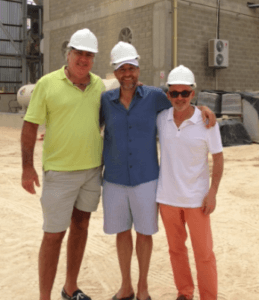 According to its website, the CGEP’s mission is to address “market gaps in developing country supply or distribution chains.” One of its larger projects has been to train young workers for jobs in “tourism, health care and port logistics” in Cartagena, Colombia, where the Giustra-connected company Blue Pacific owns a port that was under construction as of 2013, World Bank documents show.
According to its website, the CGEP’s mission is to address “market gaps in developing country supply or distribution chains.” One of its larger projects has been to train young workers for jobs in “tourism, health care and port logistics” in Cartagena, Colombia, where the Giustra-connected company Blue Pacific owns a port that was under construction as of 2013, World Bank documents show.
Business Insider offers a look into Pacific Blue with their ongoing ventures and ports.
Blue Pacific’s Branger, Iacono & Giustra in Cartagena, March 2013. Blue Pacific — Iacono and Giustra’s private company led by Jaime Perez Branger — owns ports under construction in Cartagena and Barranquilla, as well as power plants, farms, mines, and other infrastructure assets scattered across the country.
As if the above wasn’t enough, the Medium reported (this was also the only source I could find to mention the Acceso Training Center):
In 2000, President Clinton helped fund Plan Colombia, providing $1.3 billion in assistance over two years. Excluding Plan Colombia funding, President Clinton’s administration increased aid related to ending narcotics trafficking by almost 3600%, from $25 million in 1993 to almost $895 million in 2000.
Did he just say our taxpayer dollars funded cocaine? Oh right, it was funds to end narcotics. We see how well that worked out.
It’s important to remember that when the U.S. government agrees to a trade pact with another country, they are supposed to be held to a standard of human rights. Yet time and time again deals were made despite the violence to the citizens of other countries. Below is a very well done 7-minute video that depicts how the Clintons disregard human rights in other countries in order to rape and pillage their land, while giving power to the drug and war lords to run the streets. This is a fantastic summary of how they take power over the land and people in other countries. It’s despicable.
Port Route #2: Haiti
There are multiple ports in Haiti all owned by elite families; Port Lafito, Port Terminal Varreux, Port of St. Marc, Port of Gonaives, Port of Petit Goave and Port of Miragoane. All ports have been used for drug trafficking at one time or another.
In addition to the ports, fast boats coming in from Colombia make frequent drops in beaches all over the southern coasts of Haiti in Tiburon, Anse d’Hainault, Les Anglais, Port Salut, Cayes Jacmel, and Les Irois one of the biggest and most favored drop points.
Awhile back my source informed me that the Clintons still run everything in Haiti by proxy through the elite and corrupt officials. So based on what we do know, it’s anyone’s guess as to whether or not they have their hands in this line of business as well. It is certainly plausible, but that is for you to decide.
Port Route #3: Bahamas
Freeport is one of the largest ports in the world, located on the southwest end of the Bahamas.
Who owns it? Founded in 1994, Hutchison Port Holdings Limited, trading as Hutchison Ports, is a private holding company incorporated in the British Virgin Islands. The network is a subsidiary of CK Hutchison Holdings.
CK Hutchison Holdings Limited is a Cayman Islands registered multinational conglomerate headquartered in Hong Kong. The company was formed in March, 2015 through the merger of Cheung Kong Holdings and its main associate company Hutchison Whampoa. Its subsidiaries are endless, ranging from broadcasting to hotels and investment firms to development companies. To put it in perspective, they pulled in a revenue of $133.3 billion in 2016.
It’s subsidiaries consist of 21 companies whereby ports and container terminals make up all but 2. These ports and terminals are located in many sectors of the globe, including Hong Kong, Australia, Netherlands, Beijing, Jakarta, Europe, Panama, the UK and more.
Interesting coincidence: Did you know that the Clintons have a “Clinton Foundation” in Hong Kong that was founded in 2014? Indeed they do. In fact, it is just a 12 minute walk to CK Hutchison’s headquarters, according to the address listed on their tax returns.
Port Route #4: Miami
In Miami, the drugs comes through the Miami River in big boats from Haiti via the Bahamas. They could be smaller speed boats dropping drugs all over the coastlines of the East Coast.
Experts in “cache” from Colombia fit Haitian boats transporting goods and food between Miami and Haiti with special “cache” where the drugs are hidden. At times the DEA may spend days looking for drugs in one of those boats and never find them.
It’s also important to note that most of the elite and high officials in Haiti also own homes in Florida, with the majority of them residing in Miami.
Hugh, Roger, and Pardons?
Let’s get back to one name mentioned in the beginning – Lt. Colonel Serge Toussaint. There has been a lot published about Tony Rodham’s (Hillary Rodham Clinton’s brother) gold mine permit in Haiti, literally raping their land immediately following the earthquake. However, you don’t often hear about her other brother Hugh Rodham. Hugh has a bit of a sordid past and has followed the Clintons around since Bill became Governor in Arkansas. Guess where else he followed them? My source confirms that Hugh spent years in Haiti between 1994-2004 driving all over the land with his personal chauffeur Lt. Colonel Serge Toussaint, the colonel who was discharged and arrested for drug trafficking back in 1989. In fact, my source states, “Former Colonel Serge Toussaint weathered the storm and resurfaced in 1994 when he became the bodyguard, adviser and chauffeur of Hugh Rodham in Haiti. Toussaint was involved in drugs up to his neck.”
Here is a quote from Hillary in a Politico article trying to back-peddle when word emerged that Hugh Rodham had taken some $400,000 in fees from a client to lobby for a last-minute presidential pardon from his brother-in-law. Hillary said, “I love my brother, I’m just extremely disappointed in this terrible misjudgment that he made.”
In the same article, this is said about Bill Clinton’s pardon of his half-brother:
When Bill Clinton was governor of Arkansas in the 1980s, his half-brother, Roger, served time in federal prison after being convicted of conspiracy to distribute cocaine in a sting investigation that Clinton himself had authorized. When Clinton left the White House, it emerged that Roger, too, had lobbied for pardons, in addition to the one his brother granted him for his drug conviction.
And finally, we have one more drug trafficking pardon by former President Bill Clinton before leaving the White House. The Daily Caller reported:
Bringing the scandals full circle, Mayorkas, a former Clinton White House official, was involved in another shady dealing with Hillary Clinton’s other shady brother, Hugh Rodham.
In 1999, Mayorkas began inquiring about the case against Carlos Vignali, who had been convicted of federal drug trafficking charges. Vignali’s father had also paid Hugh Rodham $200,000 to help secure a commutation of Vignali’s prison sentence. He had served six years of a 15 year sentence when Clinton freed him from prison before leaving the White House.
Are we beginning to see a pattern here?
The “Clinton List”
During my dig I came across something I was not familiar with. It seems there is a “list” referred to as the “Clinton’s List” created by an executive order by former U.S. President Bill Clinton in 1995, to take measures against foreigners who traffic in drugs and launder money. Those on the list are deemed threats to the security and economy of the U.S.
The U.S. Treasury Department is authorized to ban all financial transactions, and seize all assets under American jurisdiction, of people named on the list. It’s much like the SDN list but with a focus on narcotics.
In Colombia, one of the countries most affected by the war against drug trafficking, it is estimated that more than a thousand people and more than 600 companies have appeared on the list since 1995.
That is a lot of narcotics affiliated people. It almost makes you wonder how it is they managed to continue such a hefty drug trade all of these years? Were certain cartel singled out? Was there a monopoly happening? How did the drugs continue to be moved with so many on the list? This is another research project for the future.
The Reality
The streets are not safe in Haiti
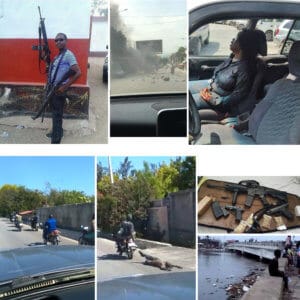
The drug traffickers hold the power and rule the streets. It is lawless in Haiti. This woman above was shot dead in her car when simply trying to meet her family at the airport. There are few police around and most of them are corrupt. Another man seen above was being dragged through the streets by a gang of drug traffickers. God only knows why. This is actually a still shot from a video that I felt would be way to shocking to watch, as it was for me.
A Ray of Light For The People of Haiti
Just yesterday, upon writing this, a special little birdie made me aware of this document produced by Trey Gowdy and Elijah Cummings that was written to the Honorable Michael E. Horowitz, Inspector General of the U.S. Department of Justice. It states the following:
We are writing to you regarding allegations of potential mismanagement and misconduct in the Drug Enforcement Administration (DEA) Haiti Country Office. The Committee obtained information that raises serious concerns relating to the handling of personnel matters and whistleblower retaliation, among other things. These concerns were verified in part by reports of investigation written by DEA’s Office of Professional Responsibility and transmitted to the Committee in response to a letter to then Administrator Chuck Rosenberg on May 11, 2017. The Committee also received information that raises questions about the effectiveness of DEA’s drug investigations in Haiti.
In light of the information we received, and because of the seriousness of these allegations, we request that your office initiate a review. Committee staff are available to brief your office to provide additional information regarding the allegations.
Thank you for your consideration of this request.
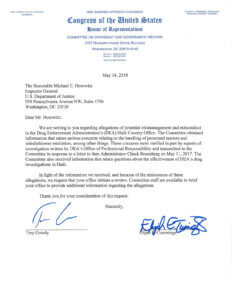
When I received this, it was music to my ears! And I proclaim:
“YES! Investigate! Take them all down from Colombia to Haiti, the Bahamas to Miami and right through to D.C. – every single last one of the drug traffickers and corrupt politicians or former politicians in connection with the continued destruction of Haiti, as well as the unwanted drugs flowing into the United States of America. YES, please put an end to this!”
Now is the time to expose, connect those dots, scream loud and be heard. There is no better time than now to bring these corrupt to their knees and bring justice to the people of Haiti once and for all.
Thank you Trey Gowdy and Elijah Cummings for bringing this to IG Horowitz’s attention. I am confident he will take action.
EVERYONE NEEDS TO SPEAK UP, STAND UP AND FIGHT!
NOW IS THE TIME!








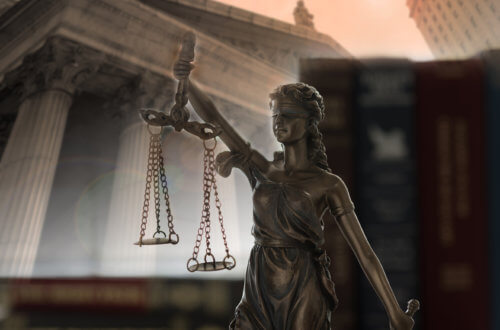


2 Comments
Yig
EXCELLANT WORK. I do think your best so far. ????? 🙂
I do have to guess the people running north from South America are probably facing pretty much the same thing. Sad we cant help save these people by letting them in, but then on the other hand… well, you know.
Amazing how often the Clintons show up in everything wrong and where there is plenty of $$$ to be had.
Corey Lynn
Thanks Yig! Yes, the Clintons are into every little dirty thing with BIG money. They will go down soon enough. 😉